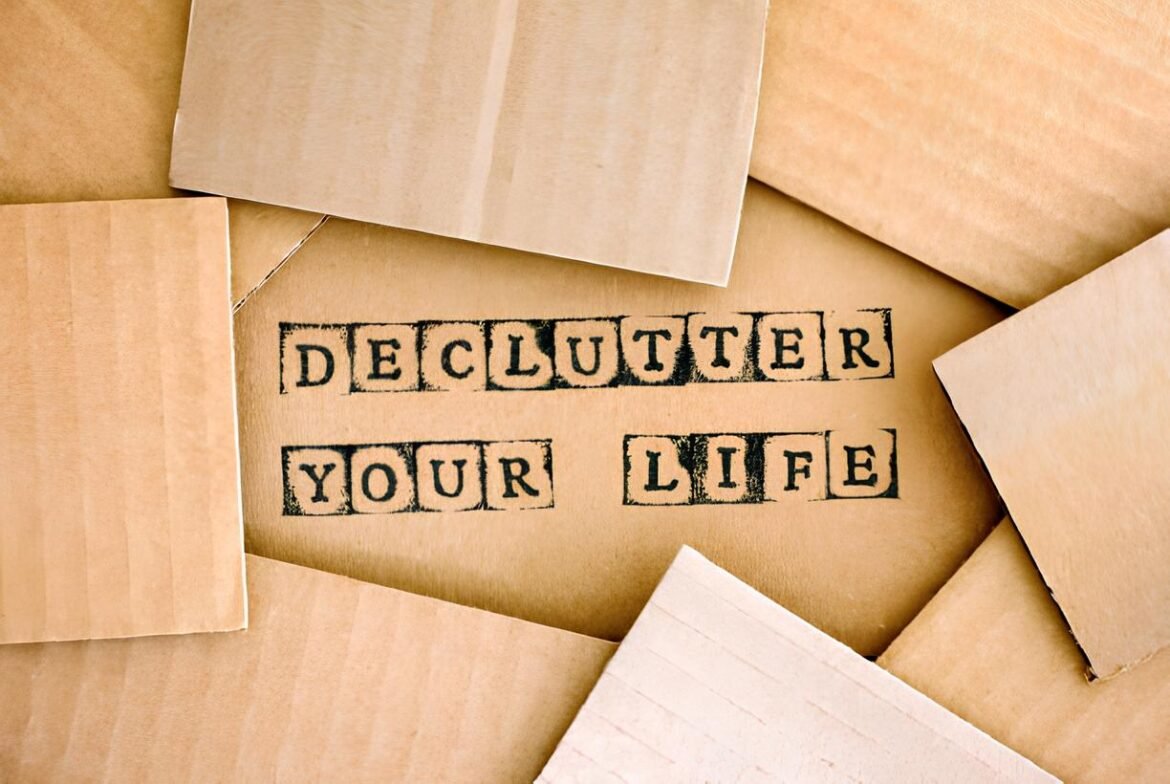Have you ever paused before tossing a crumpled receipt in the trash, hesitated while staring at that piled-up drawer of forgotten gadgets, or felt your chest tighten just looking at the clutter spilling onto your desk? It’s more than just a mess—it tugs at your mind and your mood. What if the act of clearing out those cluttered corners was actually a profound gesture of kindness toward yourself, a declaration that you matter enough to deserve order, space, and peace?
The Psychology of Clutter: More Than Just Mess
We often dismiss clutter as something merely physical—the excess stuff that takes up space. But research and lived experience reveal it’s deeply psychological. Clutter can be a mirror reflecting inner chaos, unresolved emotions, or self-neglect. Psychologists have found that clutter can increase feelings of anxiety, reduce concentration, and even contribute to poorer sleep quality.
Visual mess invites stress hormones like cortisol to rise, subtly keeping your brain on alert instead of at ease. When you’re surrounded by things that you don’t need or that drain your mental energy, it sends a quiet message: your environment—and by extension, you—are not fully valued.
Decluttering as an Act of Self-Respect
Think of decluttering not as a chore, but as a vote of confidence for yourself. When you decide to clear the clutter, you’re telling your mind and body that you deserve space—not just physically, but mentally and emotionally.
Respecting your space is deeply intertwined with respecting your own well-being. It’s a form of self-care that transcends the surface-level idea of tidiness. It’s about peeling back what no longer serves you, so there’s more room for what truly matters.
- Choosing What Stays: When you thoughtfully decide what belongings have purpose and meaning, you affirm your values and priorities.
- Creating Energy Flow: A decluttered environment invites a calm, focused energy that supports productivity and creativity.
- Enhancing Emotional Clarity: Less noise in your surroundings can soften overwhelm and promote mindful presence.
Approach decluttering with compassion—allow yourself to let go gently, not with pressure or perfectionism.
Practical Steps to Gentle Decluttering
Starting the decluttering journey can feel daunting, but it doesn’t have to be overwhelming. The key is to break it down into manageable, mindful actions that honor your mental space as much as your physical.
1. Begin with Small Wins
Choose one tiny space—a drawer, a shelf, or even just your desktop—to focus on. Removing just a few unnecessary items can build momentum and boost confidence.
2. Sort with Intention
Create categories such as Keep, Donate, Trash, and Maybe Later. Handle each item thoughtfully, asking:
- Does this serve a purpose?
- Does it bring me joy or comfort?
- When was the last time I used or appreciated it?
3. Set Time Limits
Give yourself 15 to 30 minutes per session. Decluttering in brief, consistent bursts respects your energy and reduces burnout.
4. Celebrate Progress, Not Perfection
Every item released is a step toward reclaiming your space and peace. It’s not about an empty room but about creating flow, comfort, and control.
Common Decluttering Challenges and How to Overcome Them
Letting go can stir up emotions—sentimental attachments, fear of waste, or overwhelm with the sheer volume of belongings. Recognizing these challenges helps you approach them with kindness.
- Sentimental Items: Photograph or journal memories attached to objects instead of keeping the physical item.
- Guilt About Waste: Remember that donating or recycling is a responsible choice that extends your belongings’ value.
- Decision Fatigue: Use a “two-touch” rule—handle an item only twice before deciding what to do with it.
- Procrastination: Pair decluttering with a favorite playlist or podcast to make it enjoyable.
Avoid taking on too much at once—decluttering marathon sessions can lead to emotional overwhelm and abandoning the process altogether.
Mindful Minimalism: Cultivating Lasting Peace
Decluttering is not about joining a movement or fitting into a trend. It’s about discovering what intentional living means for your unique needs. Mindful minimalism focuses on quality over quantity in every aspect of your life, not just your possessions.
When you clear physical clutter, you might find your habits, routines, and even relationships subtly shifting toward greater clarity and intention. Decluttering can unlock:
- A smoother morning routine
- Improved mental clarity and focus
- Stronger connection to what truly brings joy
- More sustainable living choices
This journey complements other wellness practices like adopting gentle daily rituals or creating calming spaces in your home. If you’re looking for ways to refresh your environment thoughtfully, take a look at ideas for transforming your closet with sustainable organizing techniques.
Frequently Asked Questions
How often should I declutter to maintain a sense of order?
Small, regular sessions—monthly or seasonally—help maintain clarity without overwhelming you.
What if I feel emotionally stuck during decluttering?
Pause and acknowledge your feelings. Sometimes, talking with a trusted friend or journaling helps you sort emotions from the items themselves.
Is minimalism the goal I should strive for?
Minimalism is personal. The true goal is a home that supports your life, whether that means fewer things or simply more organization and meaning.
Can decluttering improve mental health?
Yes. Clearing clutter reduces stress and distractibility, promotes calm, and even encourages healthier routines.
A Space That Honors You
Choosing to declutter is more than tidying up; it’s a radical act of honoring yourself. Every item you release creates breathing room—for your thoughts, your inspiration, and your well-being.
Let each cleared surface, each organized drawer, be a testament to your worthiness of peace and care. With mindful intention, you’re not just cleaning a room—you’re curating a life full of respect, clarity, and calm.
For a broader look at crafting spaces and routines that enrich your daily life, explore how designing a calming bedroom sanctuary boosts rest and renewal—a perfect complement to your decluttering journey.

